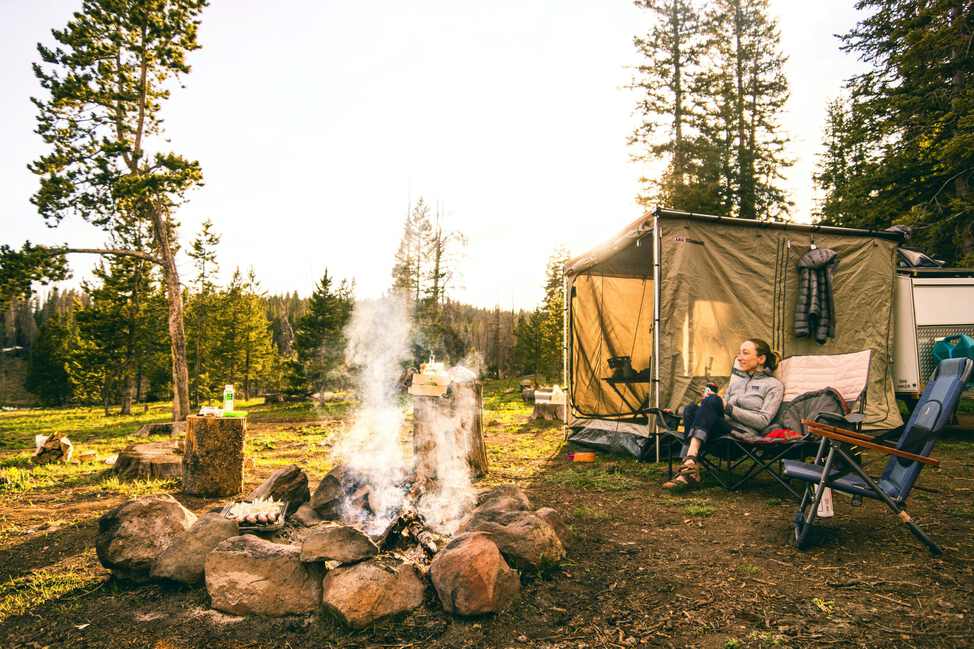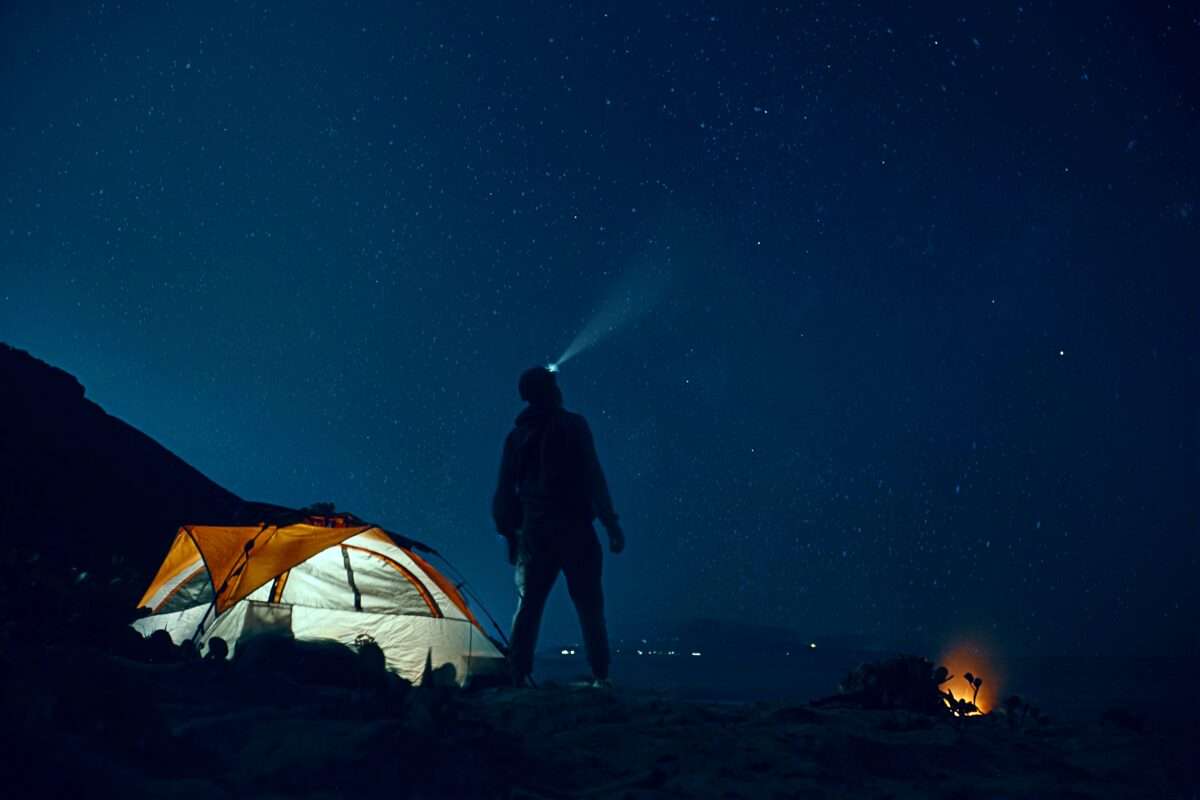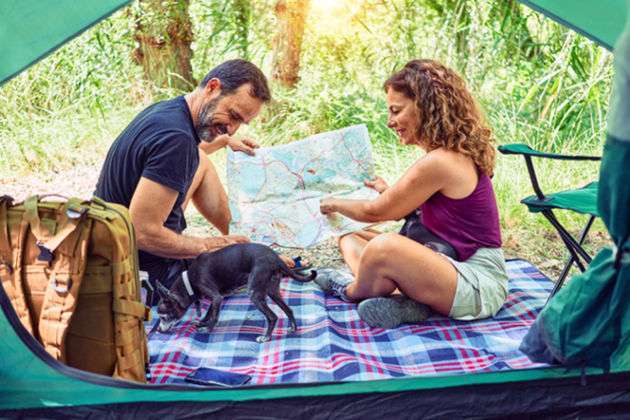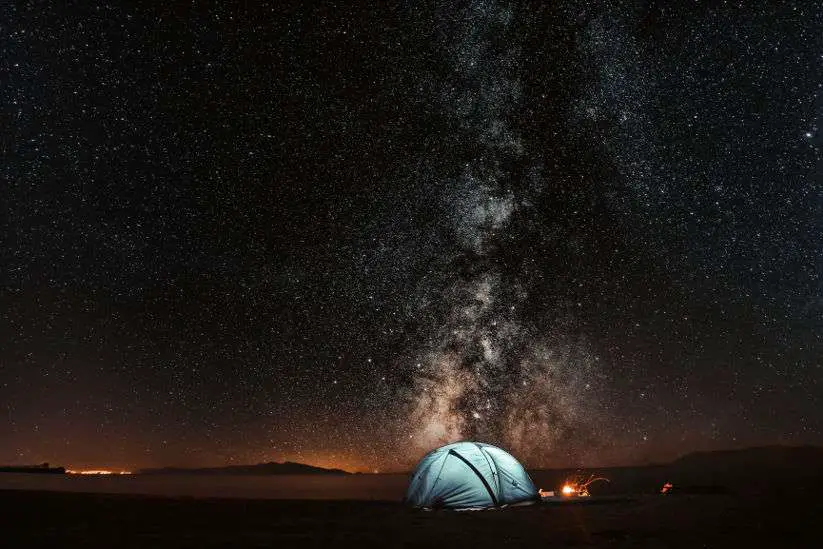Nothing beats the serenity of a night under the stars, enshrouded by the warm confines of your tent. Yet, as any avid camper knows, the challenge of staying warm can turn a dreamy camping escapade into a frosty nightmare. Whether you are a seasoned winter camper or a first-time adventurer, this guide will help you better understand the nuances of combating the cold when tent camping.
Choose the Right Gear
No two camping adventures are the same, and the gear you choose directly affects your warmth and comfort in the outdoors. The right equipment can make a world of difference when it comes to staying warm.

- Insulated sleeping bag: Much like a suit of armor, a quality insulated sleeping bag is essential. Select a bag rated for the lowest temperature you anticipate, and consider opting for a mummy-style sleeping bag that hugs your body, trapping the warmth.
- Suitable tent: Tents designed with cold weather in mind provide increased insulation and wind resistance capabilities. Look for a sturdy and well-ventilated tent with a full-coverage rainfly to shield you from the elements.
- Sleeping pads: A sleeping pad not only adds comfort, but it also creates a barrier between you and the cold ground. Look for pads with a high R-value, which indicates a higher level of insulation.
Dress Appropriately
Weather conditions can change without warning, making it vital to dress warmly and appropriately while camping.
- Layering system: A flexible and efficient layering system offers the best protection against the cold. Start with a moisture-wicking base layer to keep sweat away from your skin, followed by an insulating mid-layer made of fleece or wool. Finish with a windproof and waterproof outer layer to keep you dry and protected.
- Moisture-wicking materials: Wet clothes can cause your body temperature to drop faster, putting you at risk for hypothermia. Opt for moisture-wicking and quick-drying materials in your clothing to stay warm and dry.
- Dry clothes for sleeping: Pack an extra set of dry clothes specifically for sleeping. The insulating effect of your sleeping bag is significantly reduced when it’s damp.
Set Up Your Campsite Wisely
A well-planned campsite can be your fortress against the cold.
- Location considerations: Choosing a campsite with natural barriers such as trees or hills that obstruct wind can make a significant difference. Opt for higher ground and avoid low-lying areas where the cold air tends to settle.
- Wind protection: Properly position your tent entrance, considering the direction of prevailing winds. A vestibule to shield your entryway will help keep the wind at bay.
- Insulating ground cover: Laying a tarp or ground cover beneath your tent provides an extra layer of insulation. Consider adding another layer of insulation inside your tent as well, such as a foam pad or even an outdoor area rug.
Adapt Your Sleeping Arrangements
Several tweaks to your sleeping experience can maximize warmth and help you rest easy throughout the night.
- Head insulation: Cover your head with a warm hat or beanie, as around 10% of body heat dissipates through the head.
- Warming up before bed: Engage in light physical activity, such as jumping jacks, before climbing into your sleeping bag; your elevated body temperature will help keep you warmer as you drift off.
- Sharing body heat: If camping with a partner, consider zipping together two compatible sleeping bags to share warmth.
Utilize Safe Tent Heating Options
A little extra heat can make a big difference on a chilly night. You might run into risks if you misuse these options, but you can stay warm while camping with these options.

- Tent-safe heaters: Invest in a heater specifically designed for use in tents, such as a propane- or battery-powered heater. Follow the manufacturer’s safety guidelines and never leave it unattended.
- Hot water bottles: Fill a heat-safe water bottle with hot water and tuck it into the foot of your sleeping bag to stay toasty.
- Precautions with open flames: Although some campers may suggest using candles or other open flames to heat a tent, it’s critical to remember the serious safety risks they pose. Opt for safer alternatives instead.
Manage Moisture and Condensation
Moisture management is the key to camping comfortably, even in the cold.
- Ventilation tips: Ensure proper airflow in your tent by leaving a vent or window slightly open, allowing moisture to escape and reducing condensation buildup.
- Drying gear and clothes: Create a routine of drying out damp gear and clothes. Hang them in a sheltered area outside the tent or near the tent’s ventilation areas.
- Food and Hydration Considerations: The right diet and hydration habits can impact your body temperature and energy levels.
- High-calorie meals: Metabolic heat increases during digestion. Prioritize high-calorie, protein-rich, and fat-dense meals to keep your body temperature higher.
- Warm beverages: Sipping on warm tea, coffee, or hot chocolate can provide comfort and help increase your core body temperature.
- Alcohol and caffeine limitations: Alcohol creates a false sense of warmth, dilates blood vessels, and can increase heat loss, while excessive caffeine consumption can lead to dehydration. Consume both in moderation.
Staying Active
Physical activity is key to both staying warm while camping and boosting your morale in cold conditions.

- Generating and maintaining body heat: The thermoregulatory center in your brain tries to keep your core body temperature steady. One way it does this is through thermogenesis, or heat production. This can be stimulated by physical exertion, such as hiking or chopping firewood.
- Activity options for warmth: Variety in activities not only keeps camping fun but it also helps in staying warm. Consider lighter activities and games that can be performed safely around the campsite to encourage intermittent body movement. Games like tag or hide and seek can be fun for family camping, while adults can enjoy a quick, safe hike or splitting firewood for the evening campfire.
- Staying active helps your mind too: Physical activity is as good for the brain as it is for the rest of the body. It increases the flow of oxygen and nutrients to your brain, which can enhance your mood and cognitive function. Many campers report a sense of tranquillity and clarity of thought when keeping active in the great outdoors, proving that the benefits go well beyond merely staying warm.
Staying warm while tent camping is an art and a science. Implementing the strategies outlined in this guide will help ensure that your outdoor experiences are memorable, comfortable, and cozy regardless of the cold. Embrace the challenge, and venture forth, fully prepared, into the enchanting world of camping. For more tips and expert advice on camping and outdoor adventures, don’t forget to follow Campiffy to stay up-to-date on the latest camping trends, tips, and tricks. Happy camping!

Leave a Reply
You must be logged in to post a comment.